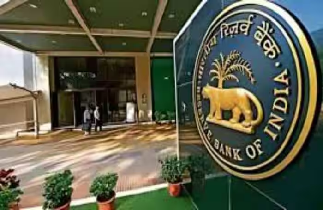The Indian economy and the domestic financial system are underpinned by strong macroeconomic fundamentals, and healthy balance sheets of banks and non-banks with returns on assets at decadal highs, according to the RBI financial stability report released on Monday.
“The Indian economy is exhibiting steady growth, underpinned by solid macroeconomic fundamentals and strong domestic growth drivers,” the report states.
The soundness of scheduled commercial banks (SCBs) has been bolstered by strong profitability, declining non-performing assets and adequate capital and liquidity buffers. Return on assets (RoA) and return on equity (RoE) are at decadal highs while the gross non-performing asset (GNPA) ratio has fallen to a multi-year low, the report states.
Macro stress tests demonstrate that most banks have adequate capital buffers relative to the regulatory minimum even under adverse stress scenarios. Stress tests also validate the resilience of mutual funds and clearing corporations. Non-banking financial companies (NBFCs) remain healthy with sizable capital buffers, robust interest margins and earnings and improving asset quality.
The consolidated solvency ratio of the insurance sector also remains above the minimum threshold limit, the report points out. It also observes that the global economy and the financial system remain resilient despite heightened uncertainty.
While near-term risks have receded, vulnerabilities such as stretched asset valuations, high public debt, prolonged geopolitical conflicts and risks from emerging technologies pose medium-term risks to financial stability.
The domestic financial system is demonstrating resilience, supported by healthy balance sheets of banks and non-banks, and fortified by strong capital buffers, robust earnings and improving asset quality.
Vulnerabilities in the form of stretched equity valuations, pockets of stress in the microfinance and consumer credit segments and risks from external spillovers require close monitoring, the RBI report added.
Domestic regulatory initiatives continue to focus on reinforcing the safety and resilience of the financial system. Efforts have been focused on strengthening the resilience of financial intermediaries and market infrastructure, with emphasis on cyber resilience, fraud prevention and customer protection, the report said.
Global regulatory initiatives have concentrated on mitigating risks arising from technological advancements, cyber security threats and third-party dependencies. Addressing vulnerabilities in non-bank financial intermediaries and cross-border payment systems remain priorities, the report added.



